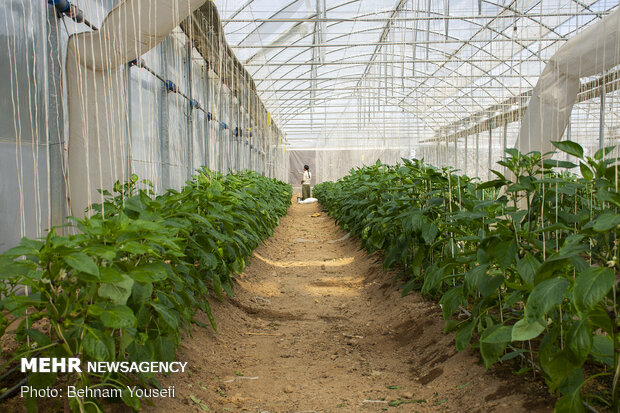The Food and Agriculture Organization of the United Nations (FAO), in collaboration with the World Food Programme (WFP) and Iran’s Bureau of Aliens and Foreign Immigrants’ Affairs, has established a greenhouse in Mohajerin Semnan Settlement (located around 220 km east of Capital Tehran), providing the Afghan refugees with the new sustainable livelihoods opportunities.
According to the last official government estimates, Iran hosts 951,142 Afghan refugees. Approximately 97% of these refugees live in urban and semi-urban areas, while the remaining 3% reside in 20 refugee settlements located throughout the country.
Financially and technically supported by FAO, the greenhouse would enable the Afghan refugees to generate income through agricultural practices.
“Following a joint assessment conducted by FAO and WFP, and the one-day training workshop held for 30 interested refugees, a group of 15 capable individuals has been selected to participate in this initiative,” said Hooman Moezzi, FAO Programme Consultant. “The selected refugees will gradually be empowered to manage the greenhouse independently. They will be advised, and equipped with the necessary skill to cultivate various ornamental and edible plants in the greenhouse.”
Moezzi further said that “greenhouse cultivation will allow the refugees to have higher control on growth conditions and produce off-season products based on the periodic market demand.”
Highlighting the cooperation with FAO, Salman Bahrami, WFP Livelihoods Expert said, “this is the first joint project of these two UN agencies in refugee settlements in Iran, aiming at providing the beneficiaries with new opportunities for sustainable income generation.” He added, “hopefully, WFP and FAO implement additional similar projects in other refugee settlements in the country.”
FAO, as a UN specialized agency, leads efforts to defeat hunger, improve nutrition, increase agricultural productivity, raise standard of living in rural populations and contribute to economic growth.
MNA/PR
